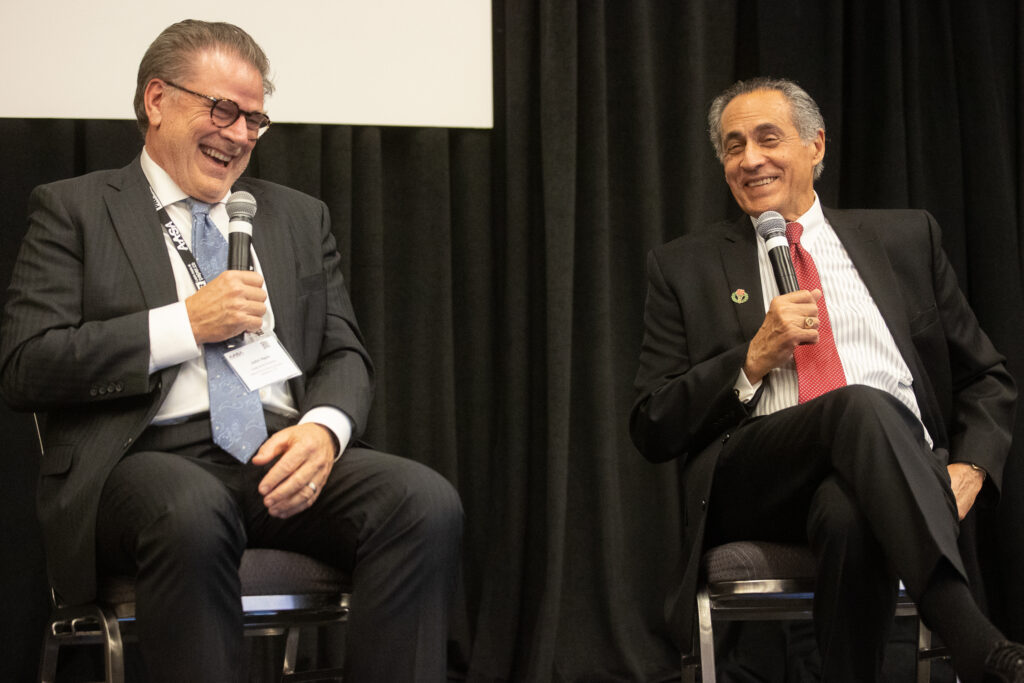A good relationship between a public school superintendent and the school board can have a significant impact on the success of a school district. This partnership can create a collaborative environment that allows for effective decision-making, increased accountability and improved student outcomes.
That was the takeaway from the Thought Leader Session at the AASA national conference on Friday titled “Superintendent/School Board Relations,” featuring Dan Domenech, AASA’s executive director, and John Heim, the National School Boards Association’s executive director and chief executive officer.
Tackling the hot topics on everyone’s mind, the discussion began with how the NSBA is in the midst of making major changes in future services. “Our charter for 80 years has been providing services to state school board associations,” said Heim, noting that membership now are available to local boards of education.
“Local control is the most important, and we need to rethink if we are serving local school boards too or just associations,” he said.
Politics stung NSBA at the end of September 2021 when during a leadership transition, the association sent a letter to President Biden concerning threats to public schools and school board members. This letter caused an outrage with numerous school districts and factions. The divisiveness led to the formation of a competing school board association.
“Although the letter was well-intended, we faced consequences,” explained Heim.
Currently, NSBA has representation among local boards in 47 states and 23 state associations are members.
Domenech, in his final month before retirement, mentioned politics as an issue every superintendent and school district has to deal with. “Be careful taking the bait,” he said, pointing to the need to stay neutral.
Heim agreed, saying, “You have to engage both sides and not be on one or the other. It’s important to listen.”
Domenech referenced the high number of superintendents resigning, retiring or being terminated throughout the country. He asked Heim: “What qualities are boards looking for when hiring a superintendent?” Heim responded with what he felt every parent and community member wants. “A person of integrity. A good communicator. A person who will be visible.”
Linda Carr, one of the attendees, said she was looking forward to hearing this discussion and she was not disappointed. She is the superintendent of Washington County School District in Plymouth, N.C., where she has five board members but is discussing with the county about making the school board positions more like the county commissioners positions.
“The county commissioners are elected by geography. My board members are elected by geography, and some are at large,” she said during an interview with Conference Daily Online. The county is trying to convince the Washington County board to take a similar stance.
The Thought Leaders discussion concluded by addressing how to build a strong relationship between a superintendent and the school board. The two presenters said it's important for both parties to communicate effectively and work together to achieve common goals. This may involve setting clear expectations and establishing open lines of communication, as well as regularly evaluating progress and making adjustments as needed.
“Go back to ground zero,” Domenech advised. “Spend a lot of time with them. Retreat. Ask basic questions. What’s the purpose of schools? Remove talking points.” Heim added, “Talk about the basics, take away the definitions. Getting consensus is not going to be easy.”
(Brad Domitrovich is a senior editor on Conference Daily Online and a communication consultant in Georgetown, Texas.)


